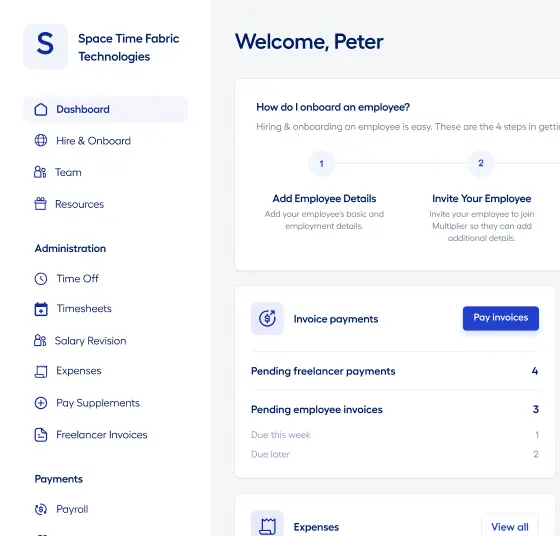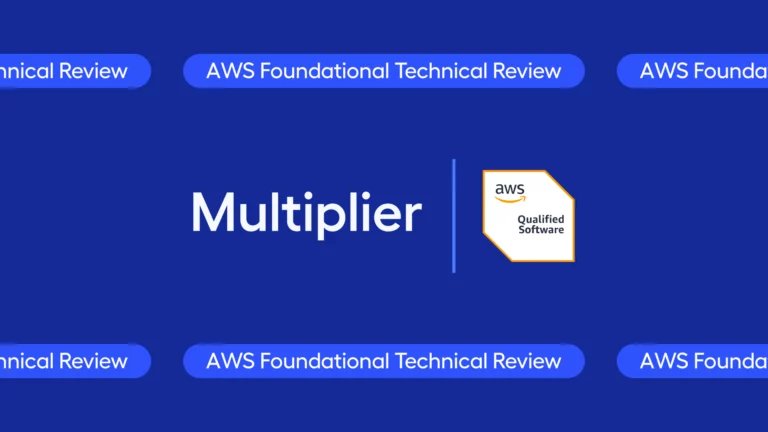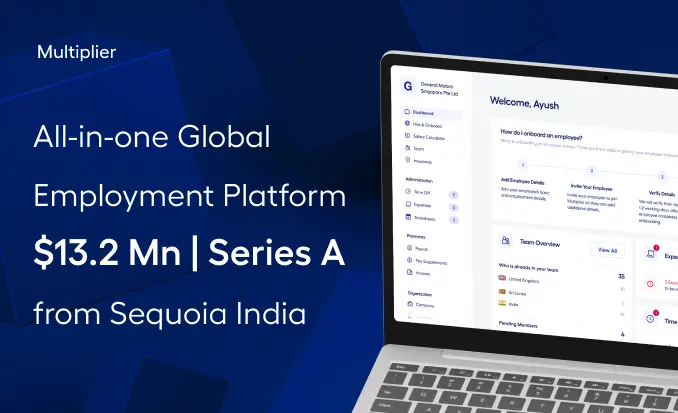Starting your own business is perhaps the most exciting thought a professional can have. Being able to solve your customers’ problems on your own, using your talents, and creating a business out of it is something everyone aspires to do at some point. However, starting a company, hiring employees, and incorporating payroll, benefits, etc., seems daunting. But this shouldn’t stop you from having a business. A sole proprietorship is the easiest and quickest way of starting your own business.
For this, you must first understand how to start a sole proprietorship and evaluate the advantages and disadvantages. You can then start thinking about ideas for your small business and the services you would offer.
This blog will help you understand the concept and present some easy-to-start sole proprietorship examples.
What is a sole proprietorship?
Sole proprietors are individuals who are single business owners and are solely responsible for it. This setup calls for no legal differentiation between the owner and the business. This means that a sole proprietorship doesn’t need to be registered as a business, and the owner will hold the profit, debt, assets, and liabilities. The taxes from a sole proprietorship will be recognized as personal income tax.
What makes a sole proprietorship so easy in nature is that there is very limited paperwork and no registration. All you need is a business name and an idea.
10 sole proprietorship examples that you can start with
So, assuming that you’ve decided you want to start something that is totally your own, but you are still unsure what you should build your business around? There are countless opportunities that you can take up and be a sole proprietor. The best part here is that you can choose your own fields. It can be based on simple things like your current skills, interests, and work/education background. The best way would be to get some knowledge about something that interests you, start small, and learn as you get more projects. Here are some famous sole proprietorship examples that can give you an idea.
- Graphic design: Graphic design is a profession that requires a very minimalistic setup. All you need is a computer, an internet connection, and a decent tool to work on. Usually, graphic designers work on creating marketing collateral such as flyers, banners, brochures, etc. However, this is not the limit. You can specialize in logo design, fonts, presentations, and much more. The more skills you pick up, the more clients you can help.
- Video Editing: The world is going social, and short, snackable videos are what the audience wants. Shooting a video is the first step; however, most people get stuck on the second part, editing. Collating all the footage and putting it together in the shortest time possible is a true art, and it is very much in demand. According to Statista, the global video editing software market stood at $779.8 million in 2018. This number is expected to reach $932.7 million by 2025.
- Photography: Photography is an art, and it requires talent. However, it is a form of art that anyone can learn very quickly. Yes, mastering it will take time; however, you can easily reach a level where you can start monetizing your skill. A picture is worth over a thousand words, and people are willing to pay well for good photos. As a sole proprietor, you can operate from a studio or even from home. All you need is a good camera and an eye for good pictures.
- Writing: Writing is an amazing sole proprietorship example. As a sole proprietor, your business as a writer can start from the comfort of your home. Freelance writers are often hired for blogs, eBooks, whitepapers, and even translations.
- Financial planning: Financial planners are individuals who help their clients organize, save, and invest their money. Financial planners also help people build funds for child education, retirement, buying homes, etc.
- Accounting: As a sole proprietor who runs an accounting business, you can help your clients with bookkeeping, taxation, and budgeting. This is a great side business for a person who already has a job in this field and is experienced.
- Tutoring: Tutoring is a great sole proprietorship example for students. All you need for this business is good knowledge of your subject. You can teach comfortably with, right from 1st grade to postgraduate.
- Interior design: Usually, interior design is done through an agency. However, their services turn out to be quite expensive, and they lack a personal touch. As a sole proprietor, you can control the number of projects you take on and provide your clients with the best interior designs.
- Franchise: Yes, a franchise can be considered a sole proprietorship. An individual who owns only one franchise can be considered a sole proprietor. This is an excellent sole proprietorship example as it is capable of generating promising profits. Moreover, you will have assistance with setting up, designing your store, and marketing. The only challenge with this type of business is its upfront investment.
- Handcrafting: People love buying handmade goods, and purchasing them directly from someone who created them brings in the element of authenticity. You can handcraft things like bracelets, keychains, mobile phone covers, and small bags; there is no end to the list. These businesses can expand exponentially with the help of social media and word of mouth.
These were some common sole proprietorship examples that can help you start off. The number of things one can do as a sole proprietor is infinite, and the obligations are minimal. However, before getting into it, you must understand the right time to become a sole proprietor.
When should one consider sole proprietorship?
Becoming a sole proprietor is easy; however, timing is a very important factor here. Knowing when you are ready to become a sole proprietor is crucial. Here are a few points that can help you evaluate your readiness:
- Financing: Sole proprietors usually generate the funds for starting their businesses themselves. This can either be a one-time investment or a recurring cost for you, depending on the nature of your business. For example, if you start a video editing business, there would only be an upfront investment for your computer setup and softwares. On the other hand, if you were to start a franchise, you would need to bear a lot of recurring costs, such as rent and maintenance. To understand your readiness when it comes to finances, you must evaluate your current financial standing and understand the costs that will come with your business.
- Clientele: The most important thing for any business is its customers. Before becoming a sole proprietor, you should know who your clients will be. More importantly, you should understand the demand for your business in the market. You would also need to understand your competitors and evaluate their standing in the market.
- Single owner and worker: As a sole proprietor, you will be 100% responsible for all things business. Yes, sole proprietors can have employees working for them, but they are still responsible for all business outcomes. You must ask yourself if you’re ready to handle a business single-handedly before becoming a sole proprietor.
All things considered, a sole proprietorship is one of the best steps you can take toward owning your own business. As they expand their products and services, many sole proprietors register their companies and start a formal organization.
Expand your business with Multiplier
Hiring comes along as a big challenge for sole proprietors, be it freelancers or employees. Multiplier helps you onboard and pay talent anywhere in the world. Our EOR solutions and freelancer payment platforms give you access to talent in over 150 countries.
- Generate employment contracts in under 5 minutes
- Enable payroll in multiple currencies
- Manage your employees using a single dashboard
- Build a global team of talented employees, freelancers, and contractors
Book a demo, and go global now!







